Health in the Workplace: Symposium Looks at Smart Choices for Employees
This article was in Thursday’s (November 30th) Herald and News
Written By: Sean Bassinger, H&N Staff Reporter
Showing up to work tired could be just as bad as showing up to work after two martinis.
“It has such an immediate impact on productivity,” said Dr. Dexter Shurney, who is an expert on workplace health and productivity. “If you don’t get enough sleep, it’s the equivalent of drinking alcohol.”
Eating, sleep, movement throughout the day and how people deal with stress can all affect workplace performance. Shurney has been using his own experiences and research to help improve these facets in other people’s lives by introducing them to a concept known as “lifestyle medicine.”
Sky Lakes Medical Center invited Shurney to host a special workplace health symposium at their Community Health Education Center Tuesday evening. At least 50 people attended to hear tips on ways they could improve their own workplace experience, which could lead to better business practices across the board.
Shurney primarily covered topics of employee productivity and morale, which he said could ultimately help profits and business culture as a whole. He said that just being more aware of such issues could help improve local economies following times of struggle and recession.
Productivity in the workplace
Time loss through absenteeism or loss of productivity through “presenteeism” at work could cost twice as much as medical and pharmaceutical costs, according to a 2009 study from Dr. Ronald Loeppke mentioned in the Harvard Business Review.
“That lost productivity can be even more expensive than the health care bills,” said Katherine Pope, Sky Lakes Wellness Center program director. “We often don’t think about how the health of ourselves and the health of our employees directly affects our businesses.”
Shurney, who has been regarded as an international expert on workplace health, previously served as chief medical director/executive director for global health benefits and corporate wellness at Cummins, a diesel engine manufacturing company that employs more than 50,000 people. Shurney also has master’s degrees in business administration and public health.
Shurney said Cummins hired him to implement his methods of lifestyle medicine at their place of work.
Shurney now works with companies and individuals on how they could improve the quality of their sleep, what they eat and other lifestyle choices that could come up at work. Shurney said that benefits could include more attentiveness, less on-the-job errors or accidents and other benefits throughout the day.
“You show somebody how to get a better night sleep and they don’t get tired in the afternoon or at lunch,” Shurney said. “They really like it.”
Prevention vs. treatment
Shurney said healthier lifestyle choices and changes were the most powerful tool to help increase productivity and decrease adverse health risks or accidents in the workplace.
“Lifestyle becomes very, very powerful,” Shurney told audience members Tuesday night.
Pope said that conditions and requirements could easily vary based on the workplace, noting how the Blue Zones Project (BZP) has made in-roads with the way they study the effects of lifestyle choices at approved work sites.
Program examples Pope used included incentives for workers to quit smoking, weight management programs such as those offered through Sky Lakes and discount gym membership packages.
“If we’re focusing on prevention rather than treatment, that could help move the needle,” Pope said.
Shurney placed great emphasis on prevention efforts being less apparent than treatment efforts across the country and the world, which has especially put a strain on helping to combat obesity epidemics all over.
During his time with Cummins, Shurney said he often worked to align himself with the same things he was trying to teach. Shurney said many of these approaches have also been highlighted and discussed as part of the BZP in Klamath Falls.
Most importantly, Shurney said that it was best to spread awareness on separate topics and begin a little at a time.
He described each topic as a “domain” such as physical activity and nutrition.
“You guys are already on the path and probably ahead of a lot of communities that I talk to,” Shurney said.
To read this article and others on the Herald and News website, please refer to the following link:
Health in the Workplace: Symposium Looks at Smart Choices for Employees (H&N)







